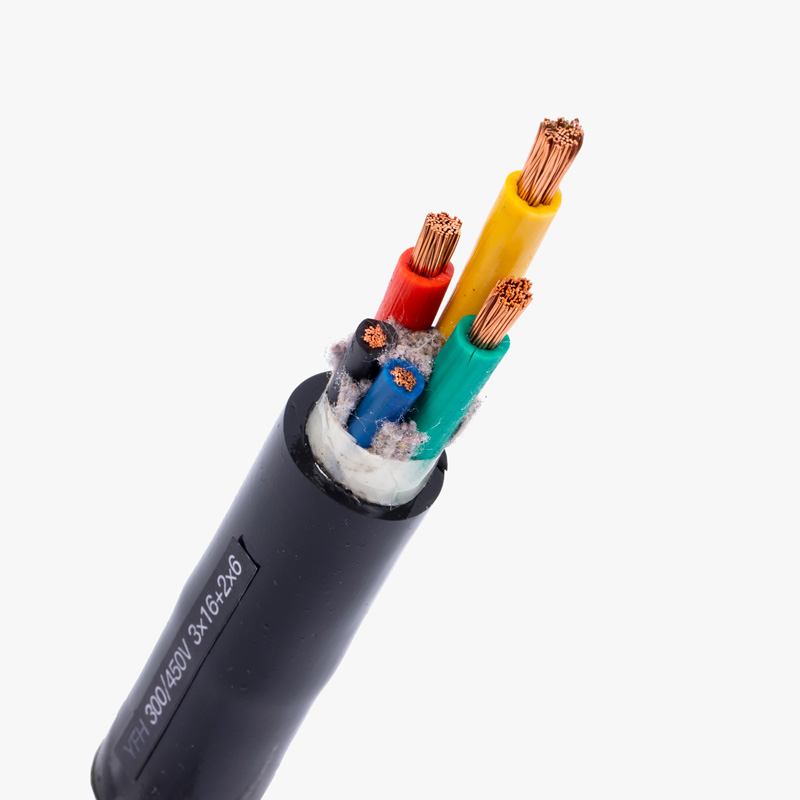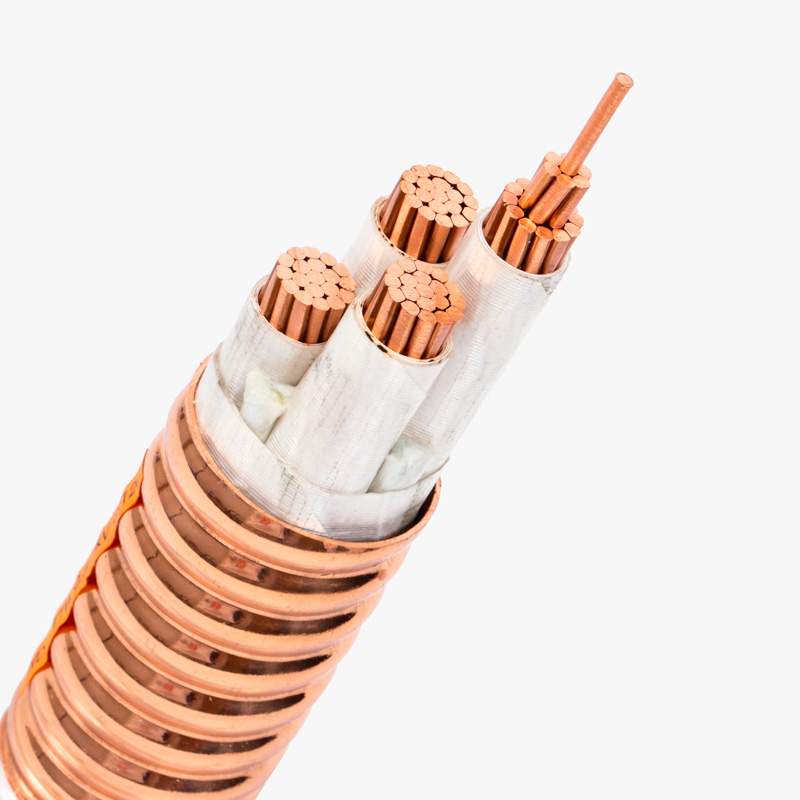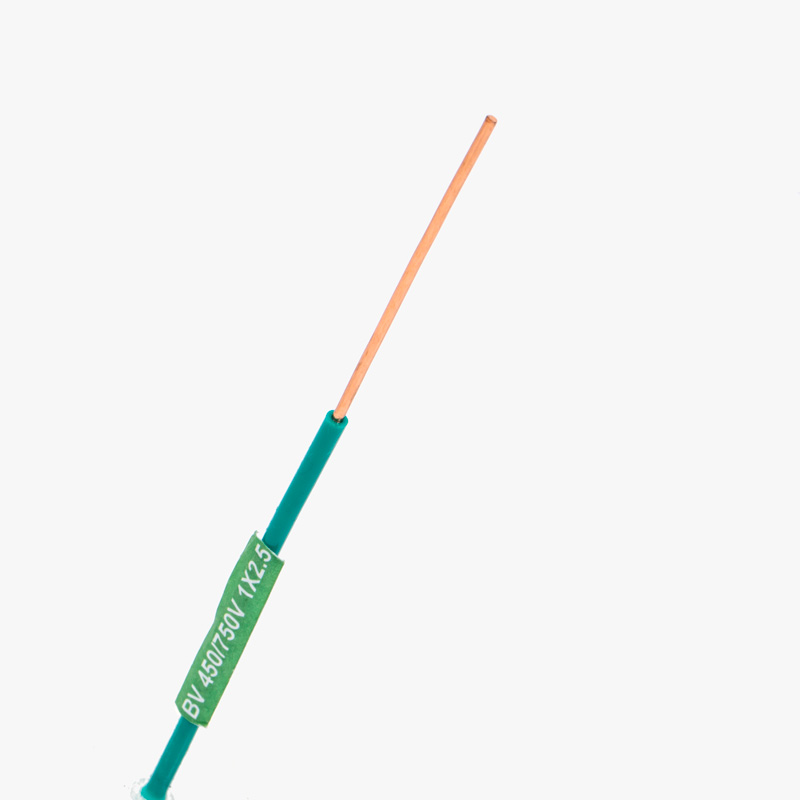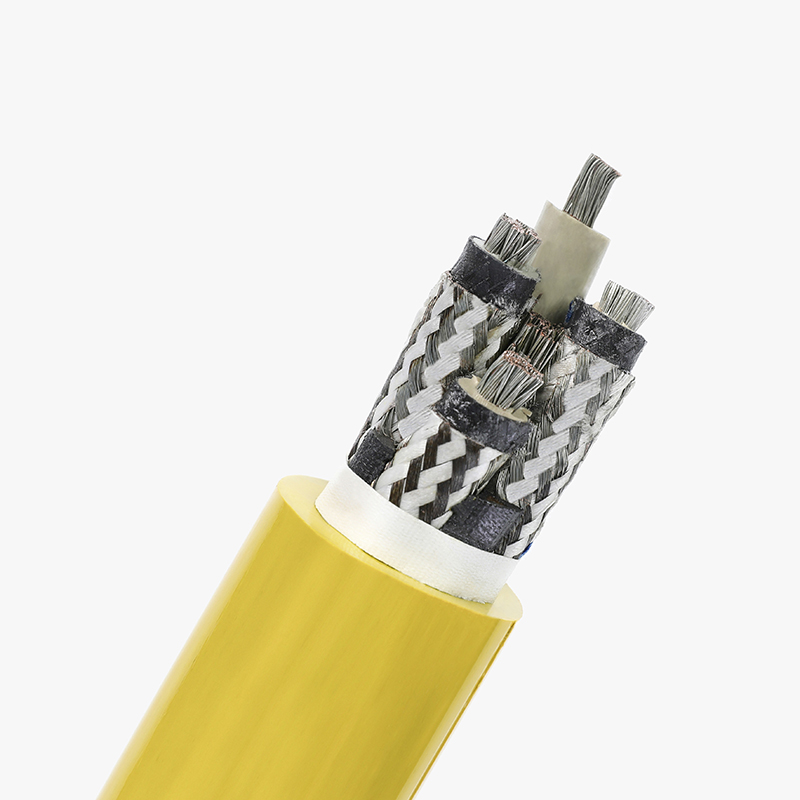Principales diferencias entre el cable solar y el cable normal
Cables solares y los cables normales cumplen funciones similares en la transmisión de energía eléctrica, pero están diseñados con características distintas para satisfacer requisitos específicos. La diferencia clave radica en su construcción y materiales. Los cables solares están especialmente diseñados para soportar condiciones ambientales adversas, como la exposición a los rayos UV, la humedad y las fluctuaciones de temperatura. También están aislados con materiales de alta calidad para evitar pérdidas de energía y garantizar una transmisión eficaz. Por otro lado, los cables normales suelen diseñarse para aplicaciones eléctricas generales y puede que no posean el mismo nivel de durabilidad que requieren los sistemas de energía solar. Estas diferencias hacen que los cables solares sean más adecuados para sistemas de energía renovable como los paneles solares, mientras que los cables normales suelen utilizarse para instalaciones eléctricas cotidianas en viviendas y edificios.
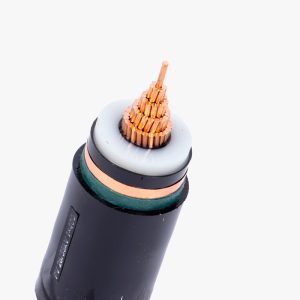
¿Cómo funciona el cable solar?
Los cables solares son esenciales para el funcionamiento de un sistema de energía solar. Se utilizan para conectar los paneles solares al inversor, que convierte la corriente continua (CC) generada por los paneles en corriente alterna (CA) para uso doméstico o comercial. Los cables solares deben soportar las altas tensiones generadas por los paneles, por lo que se construyen con materiales aislantes especializados, como polietileno reticulado (XLPE) o elastómeros termoplásticos (TPE). Estos materiales son resistentes a la radiación UV, el ozono y las altas temperaturas, lo que garantiza su longevidad y fiabilidad. El diseño exclusivo de los cables solares les permite funcionar eficazmente en entornos exteriores, donde están sometidos a la luz solar directa, la lluvia, la nieve y otras condiciones meteorológicas difíciles.
Leer más:Qué es el cable solar
¿Cuándo elegir cables solares?
Elegir los cables adecuados es crucial para la eficacia y la seguridad de un sistema de energía solar. Los cables solares deben seleccionarse al montar una instalación solar para garantizar que puedan soportar las exigencias específicas de los sistemas de energía solar. Si usted es proveedor o fabricante de equipos solares, es esencial abastecerse de cables solares de alta calidad que cumplan las normas y reglamentos del sector. Los cables solares de calidad no sólo proporcionan un mejor rendimiento, sino que también ofrecen una mayor protección frente a factores ambientales como la radiación UV, la humedad y las temperaturas extremas. Las empresas de renombre ofrecen una gran variedad de cables solares, incluidas opciones con mayor resistencia a los rayos UV y aislamiento duradero. Tenga siempre en cuenta factores como la longitud del cable, la tensión nominal y el material de aislamiento a la hora de elegir los cables adecuados para sus proyectos solares.

Siga leyendo para saber más sobre las principales diferencias entre los cables solares y los cables normales.
¿Qué diferencia al cable solar del cable de alimentación normal?
Los cables solares se diferencian de los cables eléctricos normales principalmente en su construcción y en los materiales utilizados. Los cables solares están diseñados con un mayor grado de durabilidad para soportar condiciones ambientales extremas, como la exposición a la luz solar, la lluvia y las temperaturas extremas. A diferencia de los cables normales, los cables solares son resistentes a los rayos UV y están fabricados con materiales que evitan la degradación por la exposición prolongada al sol. Esto los hace muy adecuados para sistemas de energía solar en exteriores, donde los cables deben mantener su rendimiento durante largos periodos sin verse afectados por factores ambientales.
| Característica | Cable solar | Cable de alimentación normal |
|---|---|---|
| Propósito | Utilizado para sistemas de energía solar, diseñado para entornos exteriores | Se utiliza para aplicaciones eléctricas generales en viviendas y edificios |
| Durabilidad | Muy duradero, resistente a los rayos UV, la lluvia y las temperaturas extremas | Menos duradero, adecuado principalmente para uso en interiores |
| Resistencia UV | Resistente a los rayos UV, evita la degradación por la exposición al sol | No es resistente a los rayos UV, puede degradarse con la exposición a la luz solar |
| Material | Fabricado con materiales de alta calidad como XLPE o TPE | Materiales aislantes estándar, no diseñados para condiciones climáticas adversas |
| Idoneidad medioambiental | Adecuado para una exposición prolongada en exteriores sin pérdida de rendimiento | Puede degradarse o perder rendimiento cuando se expone a condiciones climáticas adversas |
| Aplicaciones | Conexiones de paneles solares, sistemas de energía exterior | Instalaciones eléctricas interiores, distribución general de energía |
¿Por qué los cables solares son más duraderos que los cables normales?
La razón principal por la que los cables solares son más duraderos que los cables eléctricos normales es su aislamiento y construcción superiores. Los cables solares suelen estar aislados con materiales como XLPE (polietileno reticulado) o TPE (elastómero termoplástico), que proporcionan una mayor protección contra la radiación UV, el calor, la humedad y la tensión mecánica. Estos materiales están diseñados para resistir la degradación ambiental, lo que garantiza que los cables mantengan su integridad y funcionalidad a lo largo del tiempo. Por el contrario, los cables de alimentación normales utilizan materiales aislantes estándar que pueden no ser tan resistentes a la radiación UV o a las condiciones climáticas extremas, lo que los hace menos adecuados para aplicaciones exteriores como las instalaciones de paneles solares.
¿Cómo se diseñan los cables solares para su uso en exteriores?
Los cables solares están diseñados específicamente para funcionar con fiabilidad en entornos exteriores. Estos cables están fabricados con materiales de alta calidad que ofrecen resistencia a los rayos ultravioleta (UV), al ozono y a condiciones meteorológicas extremas como la lluvia, la nieve y el calor. El aislamiento de los cables solares está diseñado para evitar cualquier degradación por los rayos del sol, lo que les permite estar expuestos a la luz solar directa durante periodos prolongados sin perder sus cualidades protectoras. Además, los cables solares suelen ir revestidos de fundas duraderas y resistentes a la intemperie que protegen el cableado interno de la humedad, garantizando que los cables funcionen correctamente en condiciones exteriores adversas. Esto contrasta claramente con los cables normales, que no suelen estar diseñados para una exposición prolongada a la intemperie.
¿Cuáles son las principales características de los cables solares?
Los cables solares se caracterizan por su capacidad para soportar altas tensiones, radiación UV y temperaturas extremas. Suelen ser aptos para su uso tanto en interiores como en exteriores y están fabricados con materiales que ofrecen protección a largo plazo contra los factores ambientales. Una característica clave de los cables solares es su capacidad para manejar altas corrientes generadas por paneles solares sin pérdida excesiva de energía. Estos cables también se fabrican para cumplir las normas del sector, lo que garantiza que cumplen los requisitos de seguridad y rendimiento. Además, los cables solares suelen tener un aislamiento más grueso que los cables normales para soportar las duras condiciones de los sistemas de energía solar, incluidas las instalaciones al aire libre y en tejados.
¿Se pueden utilizar cables normales para sistemas de energía solar?
Aunque técnicamente los cables de alimentación normales pueden transportar corriente eléctrica, no están diseñados para soportar las exigencias específicas de un sistema de energía solar. El uso de cables normales en instalaciones solares puede entrañar riesgos para la seguridad, como sobrecalentamiento, rotura del aislamiento y cortocircuitos. Los cables normales no ofrecen la protección necesaria contra la radiación UV o la humedad, por lo que no son adecuados para su uso en exteriores, donde suelen instalarse los paneles solares. Además, es posible que los cables normales no puedan soportar la alta tensión o corriente asociadas a los sistemas solares, lo que podría provocar problemas de rendimiento o incluso el fallo del sistema. Por lo tanto, es muy recomendable utilizar cables solares diseñados específicamente para sistemas fotovoltaicos (FV).
¿Cuáles son las consideraciones de seguridad de los cables solares?
Cuando se trabaja con cables solares, es esencial tener en cuenta las normas de seguridad para garantizar el correcto funcionamiento del sistema de energía solar. Los cables solares están diseñados para cumplir rigurosas normas de seguridad, como la certificación UL, que garantiza que son seguros para su uso en aplicaciones de energía solar. Estos cables están equipados con características como resistencia a las llamas, tolerancia a altas temperaturas y aislamiento mejorado para evitar riesgos eléctricos. Además, una instalación adecuada es crucial para mantener la seguridad y el rendimiento del sistema. Siga siempre las directrices del fabricante y asegúrese de que los cables solares se instalan correctamente para evitar posibles problemas como la degradación del cable o incendios eléctricos.
¿Cómo elegir el cable solar adecuado para su sistema?
Elegir el cable solar adecuado implica tener en cuenta factores como la tensión nominal, la capacidad de transporte de corriente, el tipo de aislamiento y las condiciones ambientales en las que se instalarán los cables. En instalaciones solares residenciales o comerciales, los cables deben ser capaces de soportar las altas tensiones generadas por los paneles solares y proporcionar la protección necesaria contra los rayos UV, la humedad y las temperaturas extremas. También es esencial seleccionar cables que cumplan las normas industriales de seguridad y durabilidad. Trabajar con un proveedor o fabricante de confianza(como Cable Qrunning) que se especializa en cables solares puede ayudarle a tomar decisiones informadas y asegurarse de que obtiene cables de alta calidad adecuados para su sistema de energía solar específico.
¿Cuáles son las principales diferencias entre el cable solar y el cable normal?
Los cables solares están diseñados específicamente para soportar las duras condiciones del exterior, como la radiación UV, las temperaturas extremas y la humedad. En cambio, los cables normales suelen estar pensados para uso en interiores y no ofrecen el mismo nivel de protección. Los cables solares ofrecen una durabilidad y seguridad superiores, lo que los hace ideales para sistemas de energía solar.

